2015 Fellows
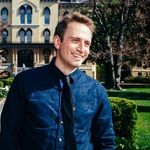
John Dillon
PhD Student, English
Bangalore, India
G. Alex Ambrose, Faculty Mentor
IBM Smarter Education Initiative: John's research involves educational big data and computational text analysis methods to investigate research questions related to education. Questions he will address include: can we use affective computing to determine how students are responding to different aspects of online courses? How can we tell if a student is frustrated, bored, or engaged? Can a student's development be mapped and recorded over time for more personalized teaching and tutoring, both in online and traditional learning contexts? Finally, can we identify at-risk students well in advance and make timely interventions? This USAID | ND Global Development Fellowship forges important collaborations between the University of Notre Dame--specifically the Kaneb Center for Teaching and Learning, the Office of Digital Learning, the University Writing Center, and iCenSa--and the IBM Smarter Education research team. As part of his fellowship, John will submit a conference paper or article based on his research, and co-author a grant application in order to continue the research after his USAID Fellowship has concluded.
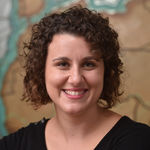
Elise Ditta
Master's student, Peace Studies
Cartagena, Colombia
Theresa Ricke-Kiely, Faculty Mentor
Challenges for Schools for a Culture of Peace in Post-Conflict Colombia: Elise, a master's student with the Kroc Institute for International Peace Studies, will be working in partnership with the Observatorio para el Desplazamiento Forzado (Institute on Forced Displacement) at Universidad de Cartagena in Cartagena, Colombia. Colombia is currently engaged in a peace process after more than forty years of internal conflict. The Universidad de Cartagena is involved in various research efforts surrounding internal displacement, victim reparations, and the peace process. Elise will join research efforts regarding how the national Colombian peace process can be meaningful at the community level in communities affected by the armed conflict.

Meghan Gallagher
Hesburgh-Yusko Scholar, Political Science and French
Stellenbosch, South Africa
Joseph Buttigieg, Faculty Mentor
Exploring Mobile Technologies and Applications to Advance Development Objectives: Meghan will be spending the summer in Stellenbosch, South Africa working with Mxit Reach Trust. Mxit offers a variety of mobile applications targeted at low-income communities focusing on health, and education resources via feature phones. Meghan will be conducting impact assessments of the newly launched Learn2Earn mobile application that incentivizes learning and homework completion through interactive quizzes aligned with weekly lesson plans. She will be looking at grade improvement and user satisfaction to provide feedback to Mxit on how the application can be improved, altered, and expanded. Meghan will be visiting schools and interviewing teachers and students using the mobile application, and will also conduct a larger survey of all mobile app users.
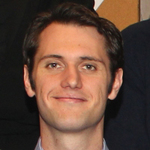
Craig Iffland
PhD student, Theology
Johannesburg, South Africa
Jean Porter, Faculty Mentor
The Applicability of International Humanitarian Law in Contemporary Armed Conflict: Craig's research project focuses on the applicability of international humanitarian law [IHL] to contemporary armed conflict. IHL is a set of legal norms that regulate wartime conduct between armed groups. Chief among these norms is the ‘principle of distinction,’ which forbids the targeting of noncombatants. In more recent armed conflicts, however, combatant groups have frequently, and sometimes purposefully, intermingled with the civilian population during the course of hostilities. Today, there is considerable legal debate as to whether the ‘principle of distinction’ should be applied differently in such cases, given the proximity of combatant and noncombatant groups. In collaboration with a team of researchers at the Afro-Middle East Centre in Johannesburg, South Africa, Craig will explore the intricacies of this debate as they pertain to recent instances of armed conflict in Africa and the Middle East. His distinctive contribution to this collaborative project will be to provide an analysis of these debates in light of the history of Catholic moral reflection on the use of lethal force during wartime.
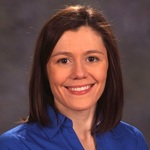
Stefanie Israel
PhD student, Sociology
Rio de Janeiro, Brazil
Mike Westrate, Faculty Mentor
Comparative Ethnography of Pacified Favelas: For her dissertation research, Stefanie is conducting a comparative ethnography of Rio de Janeiro’s pacified favelas. These informal communities are undergoing rapid change on a number of levels as a result of pacification, a proximity policing program aimed at undermining the longstanding territorial domination of heavily armed drug traffickers in select favelas. Her research will explore the social change occurring in four “pacified” communities on very different trajectories. She has been closely following one of these communities since 2012 via summer research trips. She will return on a USAID-GDF for a year of fieldwork in 2016 to investigate changes that occur surrounding the crucial period of Rio’s hosting of the 2016 Summer Olympic Games.

Cecilia Lero
PhD student, Political Science
São Paulo, Brazil
Michael Coppedge, Faculty Mentor
Varieties of Democracy: Cecilia will be partnering with the Fundação Getúlio Vargas to work on the Varieties of Democracy Project, a collaboration among more than 50 scholars to gather data and measure democracy in a new way that is systematic, historical, specific, and disaggregated. This new measure will allow scholars and practitioners to construct their own indices of democracy and advance our understanding of the historical process of democratization. This will shed light on the sequences by which regimes have developed over the past century, and perhaps provide a glimpse into the future. Ultimately, the hope is that it will advance our understanding of the causes and effects of democracy, the extent to which regime type matters in the world today, and assist governments, development agencies, and NGOs with country assessments, the design of effective programs, and the evaluation of the impact of development assistance in the democracy and governance (D&G) area. Specifically, Cecilia will act as a "bridge coder," an expert of two or more countries ensuring that data is cross-nationally consistent and comparable. The Varieties of Democracy Project is co-hosted by the Kellogg Institute for International Studies.
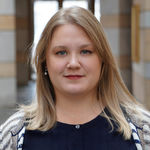
Emily Maiden
PhD student, Political Science and Peace Studies
Cape Town, South Africa
Michael Coppedge, Faculty Mentor
Varieties of Democracy: Emily will spend the summer of 2015 in Cape Town, South Africa serving as an international research affiliate within the Department of Political Science at the University of Cape Town. Working with Dr. Robert Mattes, Director of the Democracy in Africa Research Unit, she will research indicators of South Africa’s democracy from 1900-2014. Her goal is to gather data on a number of various indicators of democracy, including elections, human rights, and freedom of speech in order to understand changes and trends in South Africa’s process of democratization. This research is part of a larger study of democracy housed within the Varieties of Democracy Project, co-hosted by the University of Notre Dame’s Kellogg Institute for International Studies.
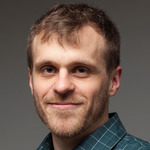
Michael Penta
PhD student, Sociology
São Paulo, Brazil
David Hachen, Faculty Mentor
Research on the Network Effects of Pacification: Michael is conducting a one-of-a-kind study on an important urban dynamic that is occurring in metropolitan areas throughout the world. Changes in regional, political, or economic situations can lead to rapid capital development in urban areas that are traditionally underserved. This can have significant effects on local social networks. Michael's research is looking into how this is occurring in a recently pacified favela in Rio's South Zone. By taking control of areas previously controlled by local drug trafficking organizations, the Pacification process has significantly altered the resources and individuals entering into this once largely isolated community. As the social dynamics of this community change, this will alter the type of relationships that are present in the network, and the level of diversity that occurs. Working with Eduardo Marques from the Centro de Estudos da Metrópole at the University of Sao Paulo, and using technology and methodology developed at iCeNSA and the Wireless Institute at the University of Notre Dame, the goal is to measure these changes by monitoring the local network activity of this community over the course of 12 months. This information will be used by the Brazilian government to better inform urban policy recommendations, and will provide valuable data on the effects of this type of urban development. Michael is also supported by the Kellogg Institute for International Studies.
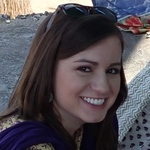
Annette Ruth
Master's of Science in Global Health graduate
Bogota, Colombia
Katherine Taylor, Faculty Mentor
Zebrafish as an Animal Model to Study Trypanosoma Cruzi Motility: Annette will be carrying out her fellowship in the Faculty of Medicine at La Universidad de los Andes in Bogota, Colombia. She will be working with Trypanosoma cruzi, the flagellate protozoan that causes Chagas' disease in the Americas. The mechanism and progression of T. cruzi infection in the living host are poorly understood. The primary objective of her research will be to investigate the motility of the parasite in vivo inside the larval zebrafish. Zebrafish are particularly well suited for intravital microscopy because they are simple to raise, well characterized, and their larvae are transparent, enabling the use of deep tissue imaging techniques. These techniques produce sub-cellular resolution of fluorescence labelled parasites throughout the living host, revealing host–pathogen dynamics at a scale that is not possible in any other vertebrate system. In order to accomplish this, Annette will first work to establish the zebrafish as an animal model to study protozoan infections via standardization of infection protocols. She will then analyze the survival of the protozoan, survival of the host, and T. cruzi migration patterns according to the injection site and colonization of target organs, including the heart, gastrointestinal tract and brain, to elucidate the clinical progression of the disease.
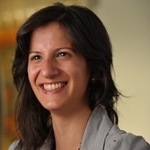
Lucia Tiscornia
PhD student, Political Science
Cape Town, South Africa
Michael Coppedge, Faculty Mentor
Varieties of Democracy: Lucia will contribute in creating a new network between practitioners at the Institute for Justice and Reconciliation in Cape Town, South Africa, and researchers with the Varieties of Democracy Project, at Notre Dame, a project co-hosted by the Kellogg Institute for International Studies. Through this collaboration, the Institute for Justice and Reconciliation staff will be exposed to and use V-Dem’s analytical tools for policy advocacy. They will gain access to additional mechanisms to better benchmark South Africa’s progress on a series of dimensions of democracy as well as identify areas for improvement. Lucia will also be coding dimensions of South Africa's democracy that will be added to V-Dem’s comprehensive database to contribute in improving the cross-national measurement of democracy.
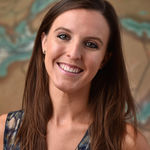
Kelsey Whiting-Jones
Master's student, Peace Studies
Cape Town, South Africa
Theresa Ricke-Kiely, Faculty Mentor
African Transitional Justice Study: Kelsey, a master's student with the Kroc Institute for International Peace Studies, will be conducting her fellowship with the Centre for the Study of Violence and Reconciliation (CSVR), a South African multi-disciplinary institute concerned with policy formation, implementation, service delivery, education and training, and consultancy services. She will be based in Cape Town and work closely with Hugo van der Merwe (Director of Research) on two primary projects during her six-month stay. The first project is a comparative study of transitional justice processes throughout the African continent, involving the analysis of different legislative mechanisms and the impact of these mechanisms on victims, local communities, and civil society. Various transitional justice themes that will be investigated include: amnesty, accountability and ex-combatant reintegration; memory and memorialization; symbolic (memorialization) and financial reparations; race, identity and violence; and gendering practices, among others. This research will culminate in recommendations to inform the African Commission for Human and People's Rights’ strategy for engaging with these challenges. Kelsey will also be supporting CSVR’s trainings, media campaigns, and outreach on the newly adopted, but not yet integrated, African Union Transitional Justice Policy Framework across African intergovernmental, governmental, and nongovernmental bodies.